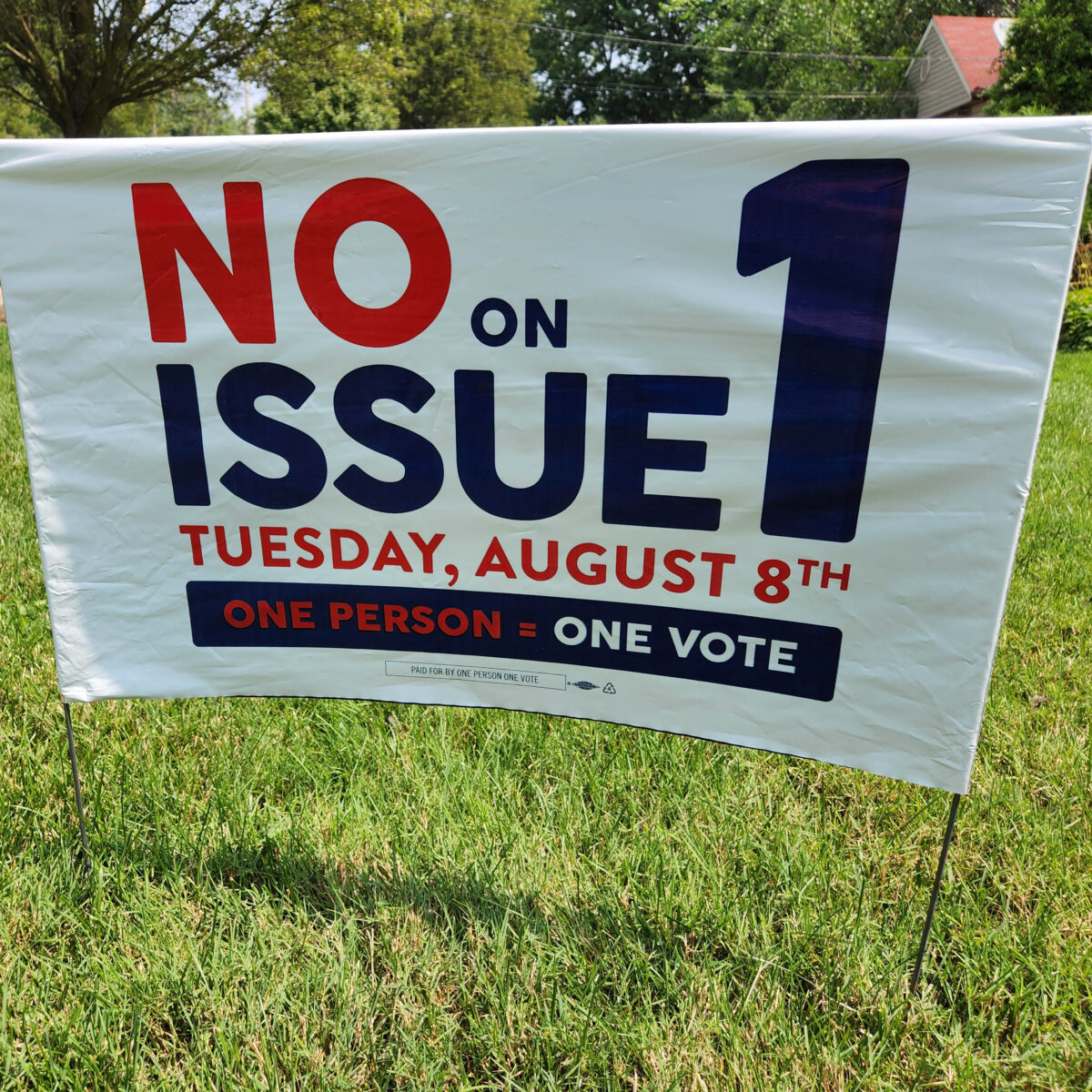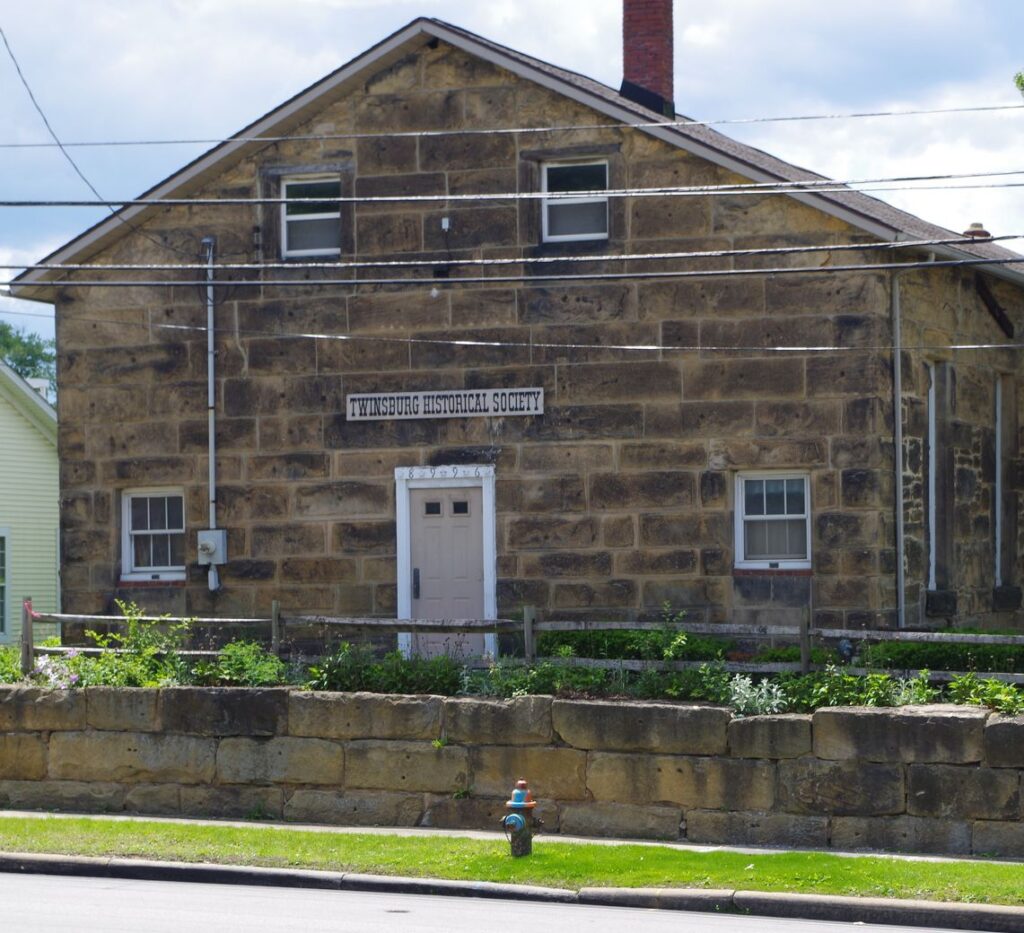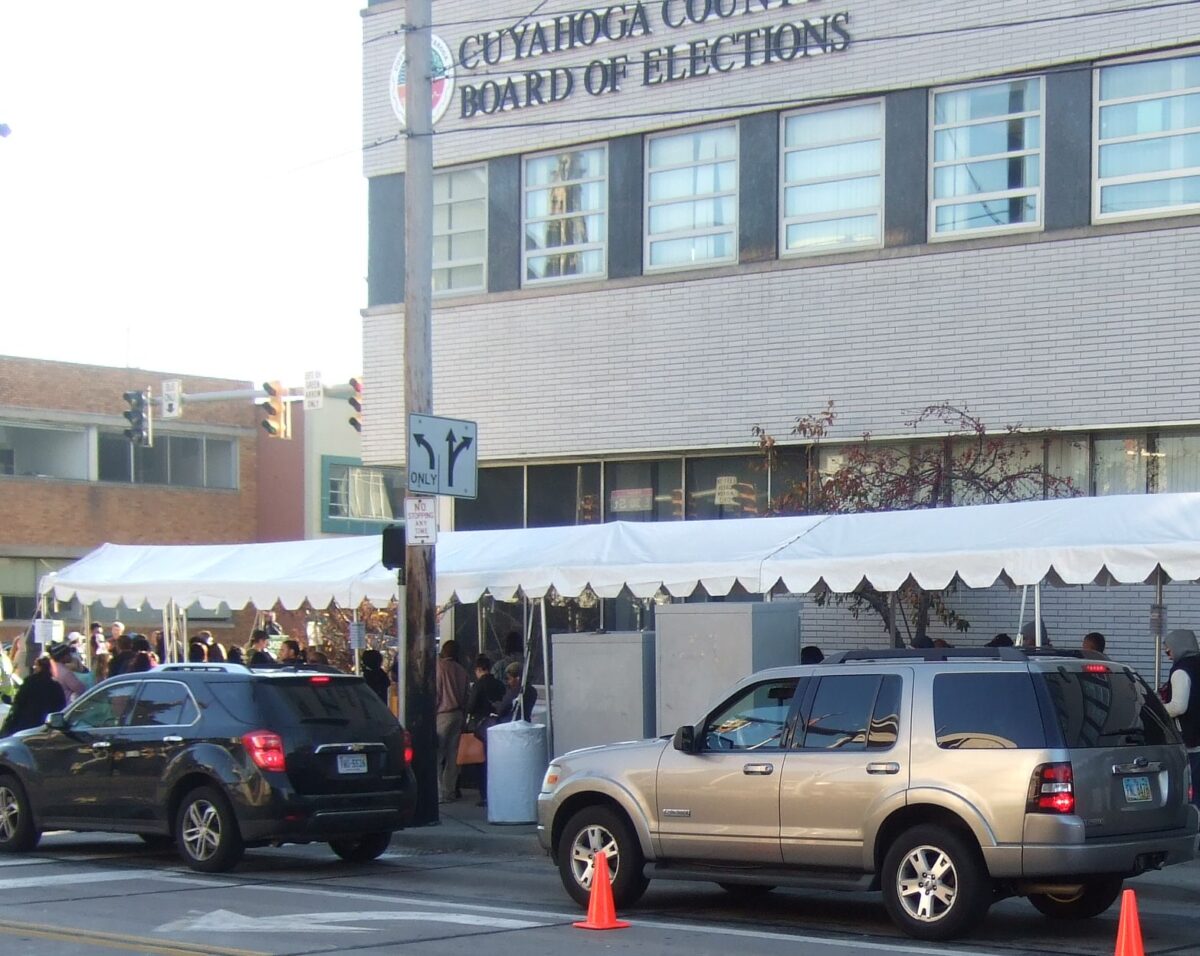I posted the column that follows in the week before the August 8 special election, which had one item on the ballot. The thoughts below are about that issue, which was intended to tighten the requirements for citizen amendments to the Ohio constitution. I opposed that issue, and fortunately (in my view), it lost. Due to Ohio’s practice for numbering these issues, the reproductive freedom amendment on November’s ballot is also marked as Issue 1. That’s a separate topic from the post that appears here.
Democratic governance is about choosing lawmakers and holding them accountable. Accountability limits errors in judgment, abuse of authority, and the sort of material corruption that Ohioans saw so clearly in the First Energy bribery scandal. Gerrymandering permits Ohio’s General Assembly to avoid accountability and maintains a one-party supermajority. It wasn’t hyperbole last year when Senate President Matt Huffman told a newspaper, “We can kind of do what we want.”
Ohio voters thought they had fixed the problem. They passed constitutional amendments in 2015 and 2018 to reform Ohio’s redistricting process. But state officials managed to subvert those reforms in 2022, granting themselves two more years of unchecked power. That’s why “they can do what they want.”
Last year, what they wanted to do was to avoid August elections. Voter turnout was too low to be representative, they said. August elections were an unneeded expense, they said.
. . . Until the U.S. Supreme Court opened up the abortion issue, that is. Suddenly the prudent thing became an expensive, unrepresentative single-issue election they they could use to play to their base and mine donors for more contributions. Issue 1 in August is dandy for that.
Thing is, I don’t think it’s about abortion at all.1 Both sides in the Issue 1 campaign have focused on the upcoming November vote on a reproductive freedom amendment as the main issue. That’s an important issue, and it’s probably the issue that has donors contributing to both sides of the campaign. But while it’s a real issue, I suggest that it’s not the real issue. Some Issue 1 supporters want to save babies, but they all want to be re-elected, and Issue 1 has the potential to help them with that. I suggest that Issue 1 isn’t about babies: it’s about grownups.
Redistricting reform, probably headed for the ballot in 2024, has the potential to finally end one-party rule in Ohio, and Issue 1 would make its passage exponentially more difficult.
By scheduling Issue 1 for an August election which they had just recently branded as unrepresentative, Ohio’s legislative princes hope to forestall accountability not just now but for the foreseeable future.2
To fight corruption and promote accountability will take two elections. First, on Tuesday [August 8, 2023], we need to defeat Issue 1; then in the primary and general elections of 2024, we need to punish those responsible for this cynical power grab.
Notes:
- I recognize that none of us ever really knows the state of someone else’s soul. I’m sure that some legislators are sincerely pro-life, but please permit some skepticism. I may be paranoid; but paranoia doesn’t mean they aren’t out to get you. ↩
- There may be good reasons to consider a change in how Ohioans amend their constitution. But just now? In a wasteful, imprudent August election? No. ↩



